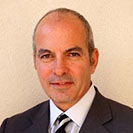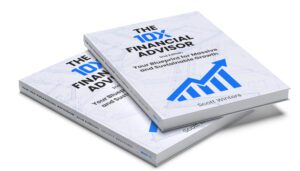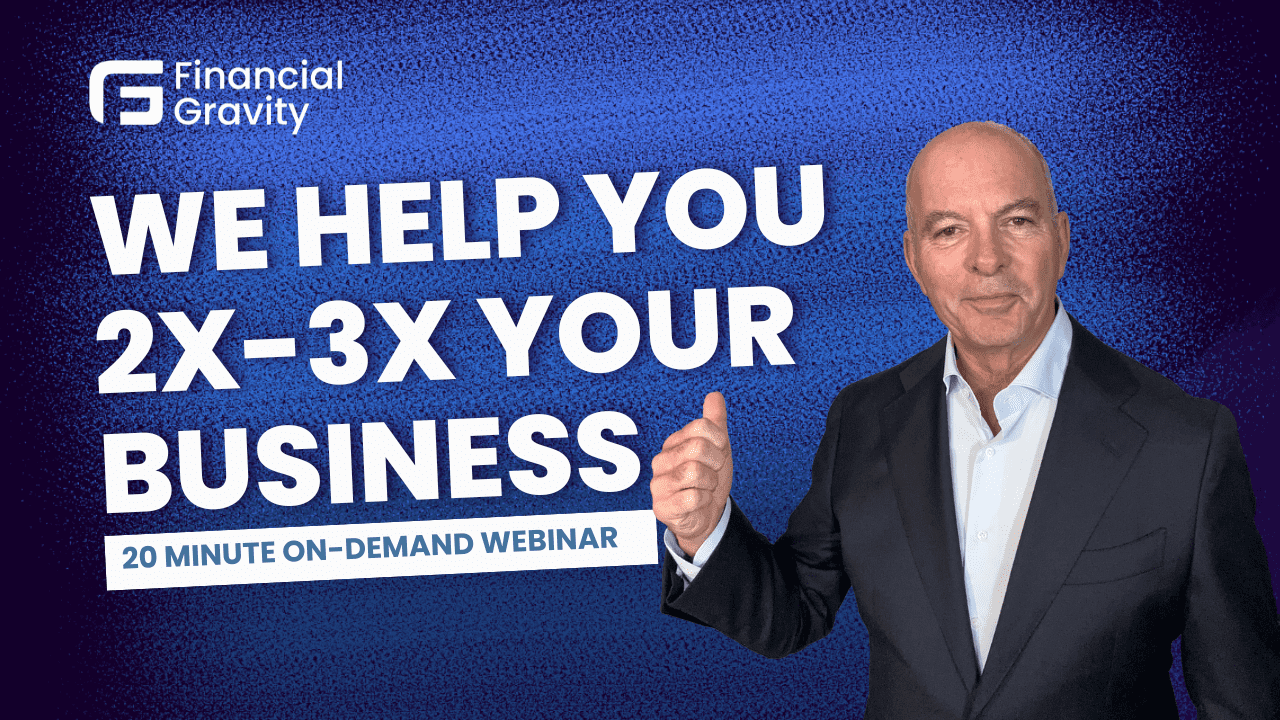First, Ask What the People Want
Market research has its earliest roots in ancient times, but for practical purposes, it began about 100 years ago when Robert Merton and Paul Lazarsfeld of Columbia University began using focus groups to understand the preferences, objections, and motivations of consumers. Market research is a big business: IBIS World recently reported that Americans will spend $36.6 billion on market research in 2025. What do you really know about your market? How much research have you done? In this blog, we’re going to provide some recent, extremely valuable market research that may help you build a competitive and sustainable practice.
The entire purpose of market research is to help marketers understand what consumers want and expect from a product. Market research uses all kinds of tools to get a handle on how customers value features, packaging, and pricing, and a broad category known as positioning. In our competitive world, information is power.
Surveys, focus groups, and online sentiment analysis provide insights into essential needs, which are often called pain points, that a product can solve. They also work to understand desirable features whose benefits will attract customers and price elasticity, meaning the customer’s willingness to pay for a given product, feature, or solution.
Large financial services firms know all of this, of course, and are expected to spend billions in 2025 on better understanding their marketplace. One fact among all stands out: for financial services in the U.S., the mass affluent and affluent markets are where it’s at. Those two market cohorts hold 97% of the national wealth–small wonder they are the target market of so many financial advisors.
There is general agreement in the industry that mass affluent investors have between $100,000 and $1 million in investable assets, while the affluent have between $1 million and $10 million. Understanding the demand drivers and buying behaviors of these two cohorts is essential if you’re looking to build lasting client relationships and achieve top-of-market growth.
One more thought before we dive into the research: market research is often structured around the status quo ante. If researchers don’t ask forward-looking questions, they may miss emerging investor preferences. We’ll be suggesting consumer prompts that advisors and market researchers would benefit from asking.
Two Crucial Questions
As we review each research finding, ask yourself two crucial questions: 1) are you providing this approach now, and 2) if not, how will you satisfy these demands in the future?
Finding #1: According to a 2023 Cerulli Associates report, 73% of mass affluent investors prefer working with advisors who provide a comprehensive approach rather than just focusing on portfolio management (Cerulli Associates, 2023).
Mass affluent and affluent investors are looking for holistic financial planning, not just investment management. This is a major change for consumers, who for decades have shopped for things like Morningstar star rankings and manager out-performance. Instead, they want advisors who can address multiple aspects of their financial life, including:
Retirement planning. Advisors must help clients optimize their retirement accounts (401(k), IRA, Roth IRA) and develop lifetime lifestyle withdrawal strategies. They do not want to outlive their money.
Tax efficiency. Tax optimization is a key concern. Investors expect guidance on minimizing capital gains taxes, Roth conversions, and tax-loss harvesting. Taxes take the biggest bite, so advisors will need to demonstrate their tools for maximizing real compounding—meaning after costs, taxes, and inflation.
Estate and legacy planning. Many affluent investors want to ensure their wealth is transferred efficiently to heirs and charity. Advisors will need to be well-schooled on trusts and insurance strategies to solve the twin challenges of living too long and dying too soon.
Forward-looking question: “If you could have the same services that billionaires are provided by the wealth management industry, would you be interested in that?” We have to guess about the answers here, but our guess is nearly everyone would say “Yes.”
In fact, we already see evidence that mass affluent investors are increasingly demanding family office-style services, even though they do not meet the traditional ultra-high-net-worth threshold. This shift is driven by their desire for comprehensive, personalized wealth management, holistic financial planning, and access to sophisticated tax and wealth strategies—all of which have traditionally been exclusive to family offices.
Finding #2: Personalized advice builds trust and deepens client relationships. A 2023 CFA Institute study found that 79% of affluent investors prefer advisors who understand their personal financial goals (CFA Institute, 2023).
Affluent investors want financial plans tailored to their specific life goals, such as:
Early retirement. Strategic planning for those looking to retire before age 60. This is part of the FIRE trend among Gen Xers and Millennials (Financial Independence Retire Early).
Education savings. Optimized 529 plans and education trusts for children and grandchildren. This is an often overlooked area where an advisor can not only provide real assistance to their client, but begin to work with the younger generation as well. That’s the kind of long-term thinning that builds very valuable practices.
Home and vacation property planning. Structuring mortgages and financing strategies is a classic family office service that clients truly appreciate.
Forward-looking question: Is it important for you to have a wealth management solution that supports not just your financial goals but your personal values as well?
Seasoned advisors know that their role in the client relationship is more like a marriage counselor than a banker. Money is among the most emotional topics in our lives. This is why smart advisors always keep a box of Kleenex in their conference room. Helping a client articulate their most precious hopes and dreams and structuring portfolios with values in mind cements a bond between advisor and client. This preference for bespoke, personalized planning is another way the family office model appeals to affluent clients.
Finding #3: A J.D. Power survey found that 58% of mass affluent investors want a mix of AI-driven financial tools and human interaction (J.D. Power, 2023).
While digital tools are essential, human interaction remains a critical component. Many investors prefer:
Automated investment management. Advisors can rely on robo-advisor platforms for routine portfolio management tasks. This is a fascinating finding since we doubt that most investors would agree on a definition of what a robo-advisor is. We believe it’s actually shorthand for ultra cost-efficient.
Human interactions for complex decisions. Life transitions, inheritance planning, and tax optimization still require a personal touch. This is a fundamental finding for advisors, who must understand that clients want to have strategic conversations with an empathetic and skilled advisor. This is the path to real productivity for the advisor: delegating all the routine tasks and focusing on what really matters is a common practice among elite earners.
.
AI-enhanced strategies. This is the broad category of predictive analytics to optimize tax strategies and portfolio rebalancing. We are always amazed at how many advisors overlook opportunities to engage in big tax decisions, such as liquidating a low-cost basis business or property.
Forward-looking question: “Would you be interested in using artificial intelligence to consider and weigh all your options before making a decision?” While we’re guessing that there are some Luddites out there, it’s hard to imagine saying “no” to this question.
Finding #4: A Deloitte Wealth Management study found that 62% of affluent investors consider pricing structure a top factor when choosing an advisor (Deloitte, 2023).
Mass affluent investors are cost-conscious and expect transparency in advisory fees. While ultra-high-net-worth individuals may tolerate high fees for exclusivity, the mass affluent segment prefers:
Flat fees or tiered pricing. Many investors prefer clear, predictable pricing over traditional asset-based fees, commissions, and embedded costs. The trends of mutual funds and ETFs make this point obvious. Clients don’t want high fees for the promise of out-performance; they want fair fees and compensated risks.
Hybrid advisory models. A combination of AI-powered automation and human advisors can reduce costs while maintaining high-quality service. Like Finding #3, we believe this is another preference for low costs. Clients believe that AI is cost-efficient but not yet able to provide human empathy—they want a real person for that.
No hidden charges. Investors demand transparency in advisory fees, fund expenses, and transaction costs. This is fascinating given the 100-year history of actively managed mutual funds, which is riddled with hidden fees and conflicts, and still today have trillions in AUM. But, it’s also true that as client wealth goes up, ownership of mutual funds goes down.
Forward-looking question: “How important is transparency to you?” Transparency—of motives and decision-making process—is a core deliverable of a family office. This is why you’ve probably never heard of anyone firing their family office and why the forward-looking advisor should make transparency a highlight of their client management philosophy.
Finding #5: A Schwab Advisor Services study found that 72% of investors are more likely to stay with an advisor who provides ongoing education and proactive communication (Schwab, 2023).
These findings are probably not a surprise to anyone. Of course, clients expect regular updates and educational content to stay informed, but advisors who see this as a chore and not an opportunity are making a big mistake. Job number one in any practice should be remaining top-of-mind. Your prospects say they value:
Periodic reviews. Regular financial check-ins demonstrate your care and your confidence. You want to avoid any appearance that you’re mailing it in. You should prepare a number of topics that may be of interest to your client and also ask very open-ended questions, such as “Is there anything that concerns you that I may be able to help you with?”
Market insights.: Monthly or quarterly newsletters explaining market trends are popular, but they can put the focus where you don’t want it. Volatility is a normal part of market behavior; it is expected. We recommend you demonstrate your knowledge of current events but always guide your clients towards the long-term perspective.
This set of findings creates a challenge for advisors because creating this content can be hugely time-consuming. We strongly recommend advisors delegate or outsource all of this, as it can be a real productivity killer.
Financial literacy resources. Webinars, guides, and workshops on financial planning topics. Your website should be a treasure trove of educational material, and it should be easy to navigate and provide feedback.
Forward-looking question: “What are the financial topics you’re most interested in?” Clients are likely to reveal more about their deepest concerns when prompted. Don’t leave them hanging when they tell you; put together a quality reference guide to help them learn more about the things that concern them.
Finding #6: A 2023 McKinsey & Company report noted that 68% of mass affluent investors prioritize digital capabilities when selecting an advisor (McKinsey, 2023).
Tech-savvy, mass affluent investors expect seamless digital experiences. The rise of transparent, low-cost wealth platforms—robo-advisors—has conditioned clients to demand more accessibility, such as:
Mobile-friendly portals. Real-time tracking of investments, performance dashboards, and financial planning tools from a smartphone will soon simply not be optional.
Automated asset allocation, tax-loss harvesting, and retirement projections. You may have noticed how often tax efficiency shows up in these findings. Do not ignore that; taxes are a common problem among all wealth cohorts, and saving money on taxes is one of the most transparent ways you can demonstrate your added value.
Automated reporting. Clients want easy-to-read financial statements and real-time performance updates. This is related to the findings about transparency and really should be a low-cost way for you to build confidence in your practice.
Forward-looking question: “Do you believe that advisors who employ technology to lower costs and improve outcomes have an advantage over their competitors?” What we can see from the findings above is that today’s wealth management consumers value efficiency, transparency, and access. You will want to lean into that.
Takeaways: What Wins Over Mass Affluent and Affluent Clients?
Whatever your niche or specialty, your ideal clients are members of either the mass affluent or the affluent cohort. They have the money and the pain points you can solve. Here’s a brief summary of what the people want:
- Mass affluent investors want more than just investment advice—they expect tax planning, estate planning, and philanthropy guidance.
- As mass affluent investors accumulate assets across multiple accounts (401(k), brokerage, real estate, etc.), they require family-office style, coordinated financial strategies.
- Many are small business owners or professionals who need business succession planning, tax-efficient wealth transfer, and charitable giving strategies.
- Many mass affluent families seek structured estate planning, trust services, and wealth education for heirs—hallmarks of family office services.
- AI-driven financial planning, robo-advisors, and digital family office platforms are lowering costs and making these high-touch services accessible to a broader audience.
To attract and retain mass affluent and affluent investors, financial advisors must make the transition to the family office model:
- Comprehensive financial planning beyond just investments
- Transparent, cost-effective fee structures
- Technology-driven, digital-first solutions
- Personalized, goals-based financial advice
- A hybrid model of automation and human expertise
- Access to sophisticated tax and wealth protection solutions
- Proactive communication and financial education
Advisors who can integrate these elements into their practice will not only meet client expectations but also differentiate themselves in an increasingly competitive market. To learn more about how Financial Gravity’s Turnkey Multi-Family Office Charter, go here or schedule a call.




















